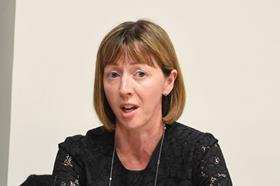In January the government published its response to the 'Supporting Earlier Resolution of Private Family Law Arrangements' consultation. Launched last March, the consultation focussed on how the justice system could better support separating families to resolve their issues earlier and away from court, where appropriate and safe to do so.

The crisis in the family court is well known. Stemming from the devastating cuts to legal aid in family cases as a result of LASPO, and compounded by the pandemic, since 2016 we have seen a doubling in the length of time it takes to resolve private law children cases (now taking 47 weeks); and over 80% of cases now involve at least one unrepresented litigant (more than double the pre-LASPO position).
Whilst the consultation had at its heart the possibility of mandatory mediation in family cases, most stakeholders highlighted the risks that that could create for vulnerable parties (e.g. victims of domestic abuse) feeling compelled to participate and that mediation, whilst appropriate in some cases, isn’t a panacea. Many respondents focussed instead on the importance of early legal advice, imparting information about rights and responsibilities and signposting to all forms of non-court dispute resolution. It was therefore heartening to see that in its response last month the government committed to launching a new pilot on legal advice around agreeing child arrangements.
The benefits of early legal advice and signposting are obvious to most. LASPO signalled a death knell for family mediation: in 2012/13, there were 31,000 mediation assessment meetings and 14,000 mediation starts; by 2016/17, those figures had fallen to 13,000 and 7,700 (reductions of 61% and 44%) respectively. As campaigners had warned ahead of LASPO, solicitors were the main referral source to mediation and this consequence was unsurprising to many.
Since then, there have been an abundance of compelling studies on the benefits of early legal advice. Research undertaken by the Law Society in 2018 showed a clear statistical link between getting early legal advice and resolving problems sooner (key findings including that 1 in 4 people who received early legal advice had resolved their problem within three to four months; and at any stage in the issue, people who didn’t receive early legal advice were 20% less likely than average to have had their issue resolved). Last November, the Nuffield Foundation-funded research 'Fair Shares? Sorting out money and property on divorce', illustrated the value added by lawyers to outcomes (at relatively modest cost) and reaffirmed the role of solicitors in referring couples to mediation. Where divorcees had used legal support there was evidence to suggest difference in outcomes with respect to the family home, pensions and ongoing support, compared with divorcees who didn’t obtain legal advice. It was felt that legal advice may provide a more holistic overview and a greater focus on what both parties need.
It is also clear from statistics published by HMCTS that solicitors play a pivotal role in helping people settle cases. For example, there are c.40,000 financial applications made to the family court each year, but 70% of those relate to people seeking immediate consent orders and very few of the remaining 30% ever go to a contested final hearing. Quite apart from the fact that, over the years, lawyers have become more well-versed in the terrible impact on children of protracted litigation (supported over the last 40 years by the Resolution Code of Practice), it is also clear that family lawyers are not generally incentivised to fight cases, given that referrals are more likely to come from clients who have settled their cases without the intervention of court. Important changes to the Family Procedure Rules coming into force shortly will sharpen the court’s focus on non-court dispute resolution.
Against this backdrop, it has been disappointing to see an element of 'lawyer-bashing' in certain quarters in the recent past, particularly in the context of discussions around reform of financial remedies on divorce. They accuse lawyers of fuelling conflict and not supporting family mediation, suggesting that an overhaul of s25(2) of the Matrimonial Causes Act is urgently needed to stamp out such behaviours. Some of the naysayers are driven by stories of (thankfully) unrepresentative cases with disproportionately high costs. Yet most specialist practitioners question the need for financial remedies reform and the Fair Shares report suggests that in the main people are able to sort out their finances on divorce under the current law, with or without lawyer support. Any reform needs to be based on the experience of the majority (most of whom never go anywhere near lawyers) and the question of how to resolve the issue of disproportionately high costs in a minority of divorce cases needs separate discussion (and may have its solution in a combination of factors including educating people about alternatives to court, placing more bars in the way of litigation where a case is mediatable and looking at costs budgeting in family cases).
The reality is that, when it comes to family justice and diverting more cases away from court, lawyers are part of the solution, not the problem. We divert cases away from court (and settle those that go to court) wherever possible and achieve better, more rounded, lasting outcomes for families. Both have the benefit of saving costs for the state (in a reduced bill for the court estate and fewer people becoming dependent on state benefits on separation). In Scotland a World Bank report found that for every £1 spent on Legal Aid in family cases the state saves £5 elsewhere. It has taken years post-LASPO to get government to acknowledge the important role that lawyers play when relationships break down. Now that we have the prospect of funded early legal advice, we must all grasp the mantel with both hands and make sure, for the sake of separating couples everywhere, that we help establish the evidential basis for a more widespread scheme being rolled out. Let us make this opportunity count.
Jo Edwards is partner and head of family at Forsters LLP
































3 Readers' comments